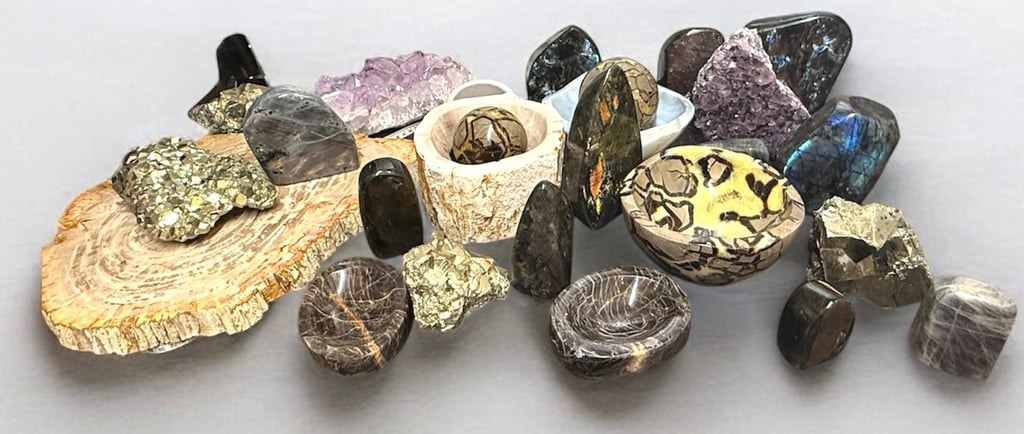Should You Collect Fossils for Your Home?
The ethical dilema about collecting natural objects
5/28/20253 min read


Should You Collect Fossils for Your Home? The Honest Take
Walk into any trendy home store lately, and you'll see them everywhere – polished ammonite coffee tables, trilobite specimens in shadow boxes, and those stunning fish fossils that look like nature's own artwork. There's definitely a "prehistoric chic" moment happening in interior design, and honestly? I totally get the appeal.
There's something deeply moving about having a piece of deep time in your living space. That ammonite on your mantel is hundreds of millions of years old. Every time you walk past it, you're reminded of the incredible scope of life on Earth. It's like having a daily meditation on the vastness of time right there in your home.
The Beautiful Reality
Fossils really are gorgeous. Those spiral ammonites are basically nature's mandalas, created over millions of years. Delicate fern impressions look like they were pressed yesterday, not 300 million years ago. And petrified wood? Those polished cross-sections with their intricate grain patterns and rainbow colors are absolutely breathtaking as decorative pieces.
Plus, here's something that might surprise you – many of these specimens were actually saved from destruction. Erosion doesn't care about beauty or scientific value. Without collectors, a lot of these fossils would just weather away into nothing within decades.
There's also an economic reality worth considering. Much of the fossil trade supports cottage industries in some of the world's poorest countries. Those beautiful trilobites from Morocco, the stunning fish fossils from Lebanon, the intricate ammonites from Madagascar – they're often collected and prepared by local families who depend on this work for their livelihoods. When you buy responsibly sourced fossils, you're supporting communities that have developed genuine expertise in finding and preparing these specimens over generations.
The Uncomfortable Truth
But let's be real about the downsides. The fossil trade can get murky fast. Some specimens come from sites that are being stripped bare by commercial hunting. When fossils get pulled out purely for decoration, important scientific information about where they came from and what they were found with gets lost forever.
And there's the trend factor. Right now fossils are having a moment, but what happens when the aesthetic moves on? I can't help wondering if some of these ancient treasures might end up forgotten in storage or worse.
The Smart Approach
Here's the thing though – collecting fossils for your home can absolutely be done responsibly, and when it is, I think it's perfectly fine.
Shop thoughtfully. Look for dealers who can tell you exactly where specimens came from and who seem genuinely passionate about the science, not just profit. Focus on common fossils that are abundant and well-documented. Those polished ammonite bowls from Morocco? There are literally millions of those, and they've been thoroughly studied by scientists. Same goes for much of the petrified wood on the market – it's beautiful, abundant, and ethically sourced.
Ask questions. Where did this come from? Is it a common species? A good dealer will be happy to share that information and will often have fascinating stories about the specimens they're selling.
Consider your motivation too. Are you buying because you're genuinely fascinated by these ancient life forms, or just because they match your coffee table? The best fossil collections belong to people who let their specimens inspire curiosity and learning.
Bottom Line
When done responsibly, collecting fossils for your home is absolutely okay. These pieces connect us to our planet's incredible history in a way that few other objects can. They spark conversations, inspire wonder, and serve as daily reminders of the vast scope of life and time.
The key is being an informed, ethical consumer. Support dealers who operate responsibly, focus on common specimens over rare finds, and let your collection inspire genuine appreciation for the amazing story of life on Earth. When you approach fossil collecting this way, you're not just decorating your space – you're celebrating and preserving our planet's incredible heritage.
2-minute read
